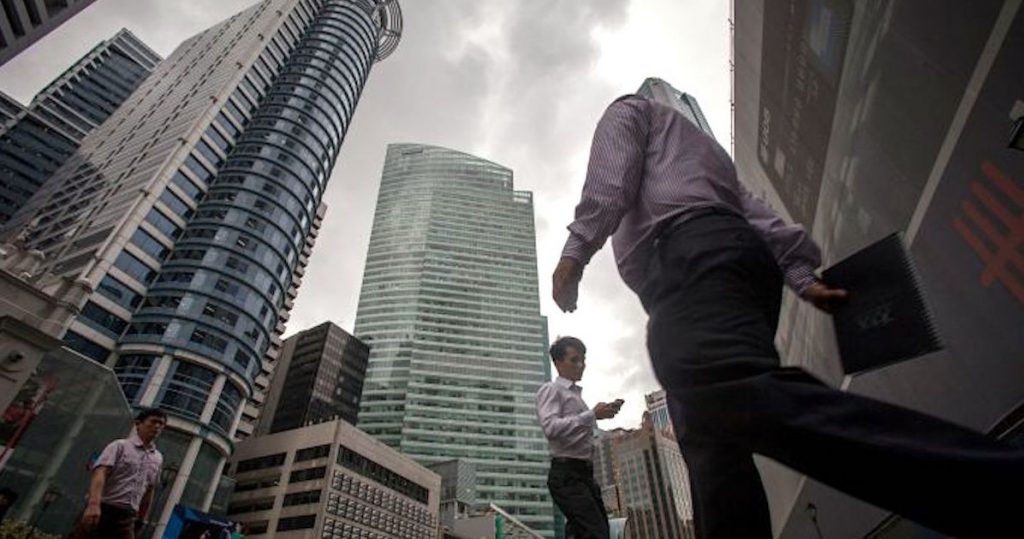In the recent Budget 2020 announcement, Minister Heng Swee Keat announced that the government is setting aside S$5.6 billion to help businesses and households cushion the impact of the COVID-19 outbreak.
Following the backdrop of a weak Singapore economy growth of just 0.7% in 2019 — its weakest growth since the financial crisis of 2008 — the country’s economy is expected to decline by 0.5% to 1.5% this year.
To help SMEs and businesses stay afloat, the Government has set up a S$4 billion Stabilisation and Support Package that will help implement a wide range of measures.
These measures include a 8% cash grant for each employee’s monthly salary for all businesses in Singapore.
The government will also co-fund 20% of wage increases in 2019 and 15% of wage increases in 2020, for Singaporean employees earning a gross monthly income of up to S$5,000.
To give Singapore businesses easier access to working capital, the Enterprise Financing Scheme’s Working Capital Loan will double its maximum loan quantum to S$600,000. The Government will take on 80% of the risk of the loan, an increase from the current 50% to 80%.
While all of these measures theoretically help businesses in some of the problems they may be facing, such as defraying labour cost amidst the slowdown of businesses (hence improving cashflow for business), are they practical and sufficient for local businesses?
No Key Business Transformational Change

According to Shaun Tan, co-founder of homegrown custom gaming computing retailer Dreamcore, these measures leave much to be desired.
On the Jobs Support Scheme, while it helps defray some costs, it is only applicable for the fourth quarter of 2019 and does not make much impact on new hires in 2020.
It doesn’t help in making any key transformational change in the business.
Similar to the job support scheme, while useful, for cash-strapped startups, it isn’t strong enough to give all deserving employees an automatic pay increase due to a focus on working capital needs.
I feel that perhaps both the Jobs Support Scheme and Wage Credit Scheme could go one step further and take into account the nature (and) stage of business to assist companies across different stages of their lifecycle for more effectiveness.
– Shaun Tan, co-founder of Dreamcore in an interview with Vulcan Post
In reality, implementing Tan’s proposed idea might be a huge task as the government needed to act swiftly to implement a blanket measure which will help all businesses in Singapore.

Ho Song-En, co-founder of popular burger chain Wolf Burger, echoes the same sentiment with regards to the minimal impact of the Jobs Support Scheme.
The Budget, while helpful in the medium term, does not alleviate the immediate short-term pain that will still be felt. If i’m not mistaken, the taps will only start flowing in July, which is six months away.
– Ho Song-En, co-founder of Wolf Burger in an interview with Vulcan Post
To put things in context, a business with a 20-strong staff with an average salary of S$3,600, will have a monthly overhead of S$72,000.
Under the Jobs Support Scheme, the business owner will receive a cash grant of S$5,760 per month for 3 months, or a total of S$17,280.
The cash grant is then equivalent to covering the cost of 1.6 employees for a total of 3 months.

With businesses reporting a decline of between 10% and 30%, the cash grant is hardly sufficient to cushion the impact of the business slowdown.
Some Gov’t Measures That Are Welcomed
For Ho, whose business is in the F&B sector, he welcomes the good news on the property tax rebates.
Under the Budget announcement, a 15% property tax rebate will be granted to qualifying commercial properties to help the retail and food services sector.
“Hopefully the landlords will be fair enough to pass on the full property tax rebates to the tenants,” said Ho.
Commenting on the Enterprise Financing Scheme, both Tan and Ho shared that it is greatly beneficial for startups who need cash for their working capital needs at a low interest rate.
While the budget gives a small breathing space for business owners in Singapore, both Shaun and Ho noted that it may be insufficient to make a real impact for their respective businesses.
Other Sectors Also Require Gov’t Support
Understandably, from the government’s point of view, it may be impossible to give out more support given that the COVID-19 situation is still dynamically evolving. We don’t even know how long this virus outbreak will last.
That said, it may then be unwise for the government to deplete all the budget now.
Regardless, there are many other notable sectors that are seeing a slowdown. For instance, construction firms that are suffering from supply chain disruptions and event companies that have had to bear booking cancellations.
Apart from the five industries that have been identified (tourism, aviation, retail, F&B and transport), the government needs to be aware that there are many more sectors that are affected and require equal help and support.
Featured Image Credit: Bloomberg










